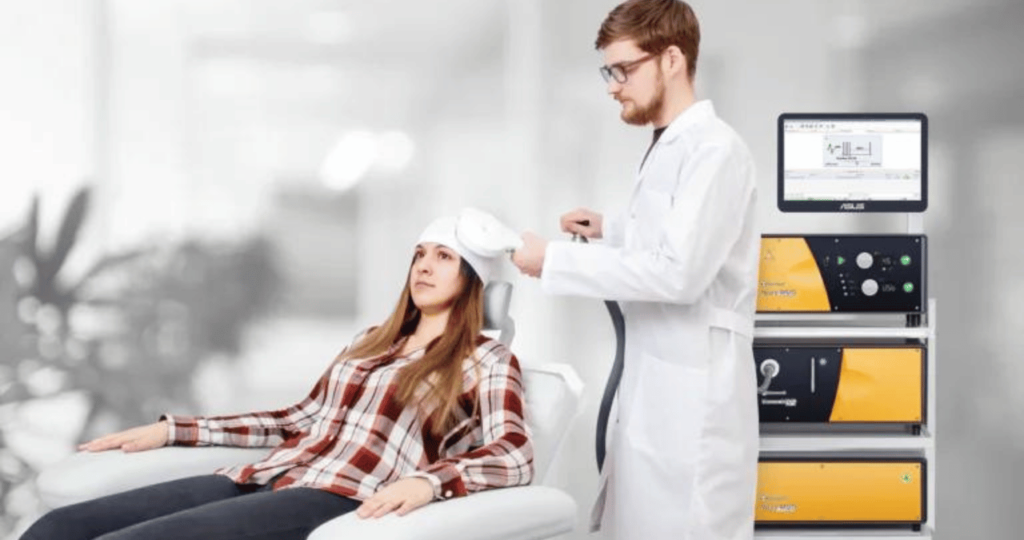One cutting-edge, noninvasive therapy option is transcranial magnetic stimulation (TMS) for various neurological and psychiatric conditions. This guide aims to provide detailed information on TMS treatment APN, its benefits, procedure, and effectiveness.
What is TMS Treatment APN?
Overview of TMS
Transcranial Magnetic Stimulation (TMS) is a medical process that uses magnetic fields to activate brain nerve cells. Its main purpose is to treat depression and other mental health disorders when other treatments have failed.
Role of APN in TMS Treatment
Advanced Practice Nurses (APNs) are crucial in administering TMS treatment. They are highly trained professionals who can evaluate patients, administer the treatment, and monitor progress. TMS treatment APN ensures that patients receive safe and effective care.
How Does TMS Treatment Work?
Mechanism of TMS
TMS treatment involves placing a magnetic coil near the patient’s scalp. The coil generates magnetic pulses that activate specific brain regions linked to mood control. This stimulation helps alleviate symptoms of depression and other mental health conditions.
The procedure of TMS Treatment APN
- Initial Consultation: The APN conducts a thorough evaluation to determine if TMS is suitable for the patient.
- Mapping the Brain: During the first session, the APN identifies the precise area of the brain to be targeted.
- Treatment Sessions: The patient undergoes multiple sessions, each lasting 30-40 minutes, over several weeks.
- Monitoring and Adjustments: The APN monitors the patient’s response and makes any necessary adjustments to the treatment plan.
Benefits of TMS Treatment APN
Noninvasive Nature
TMS is a minimally invasive process that doesn’t need surgery or medication. This makes it preferable for patients who have not responded well to traditional treatments.
Minimal Side Effects
Unlike medications, TMS has minimal adverse consequences. One of the most frequent adverse effects is moderate headache or scalp discomfort, which usually resolves quickly.
High Success Rates
Clinical studies have shown that tms treatment apn significantly reduce symptoms of depression, especially in patients who have not benefited from other treatments.
Conditions Treated by TMS
Major Depressive Disorder (MDD)
The FDA has authorized TMS for the treatment of severe depression, especially in those who have not improved with antidepressant treatment.
Anxiety Disorders
Some studies suggest that TMS can be effective in reducing symptoms of anxiety disorders, although more research is needed in this area.
Other Neurological Conditions
Researchers are exploring the use of TMS for other conditions, such as PTSD, OCD, and chronic pain, showing promising results.
Effectiveness and Research on TMS Treatment APN
Studies and Clinical Trials Numerous clinical investigations have shown the efficacy of TMS in treating depression. Research continues to explore its potential for other mental health and neurological conditions.
Patient Outcomes
Numerous individuals report significant symptom relief after completing TMS treatment. These improvements often last several months, with some patients experiencing long-term relief.
Future Prospects
The field of TMS is continually evolving. Ongoing research aims to refine the technique, improve its efficacy, and expand its applications to other conditions.

